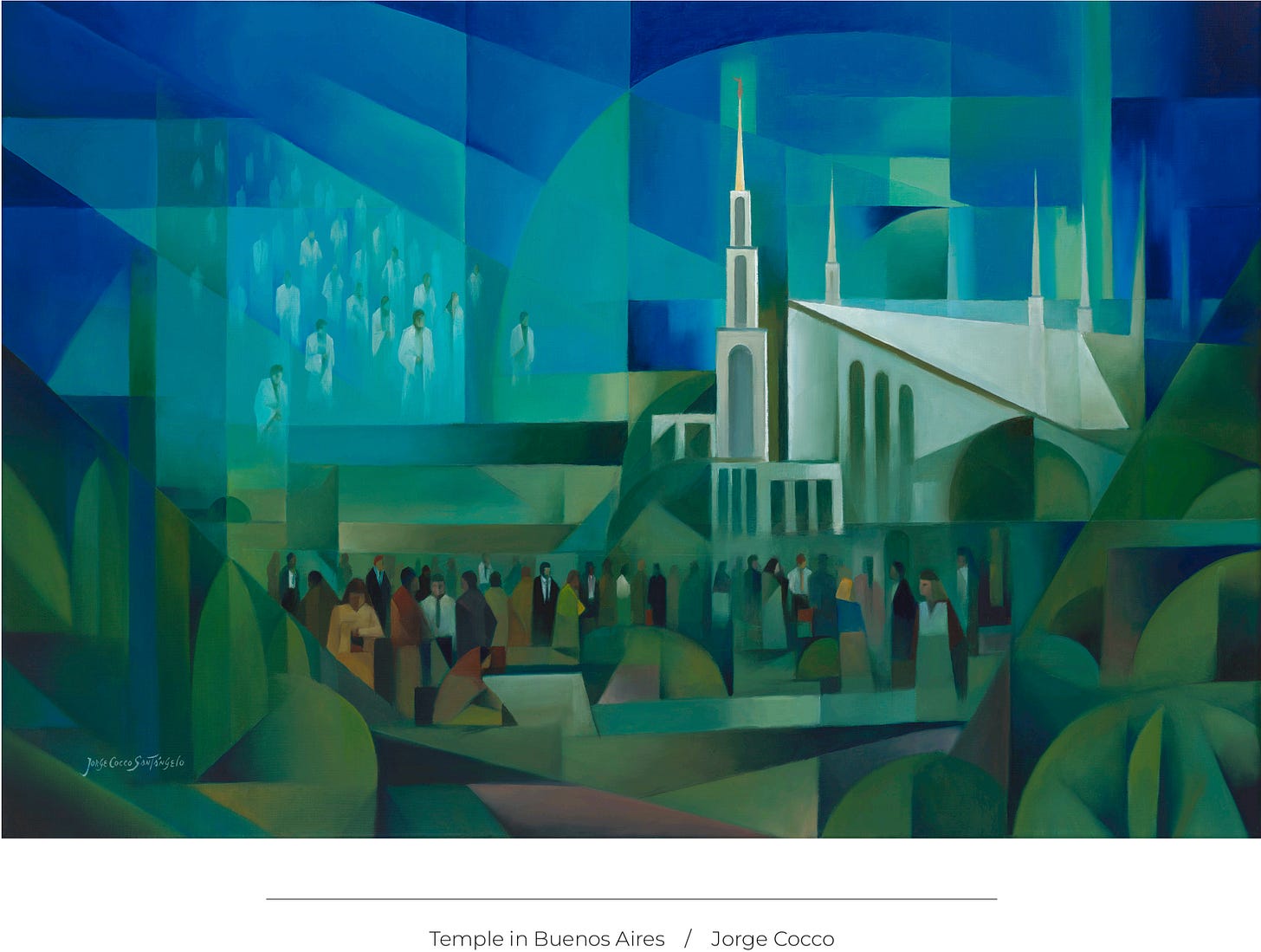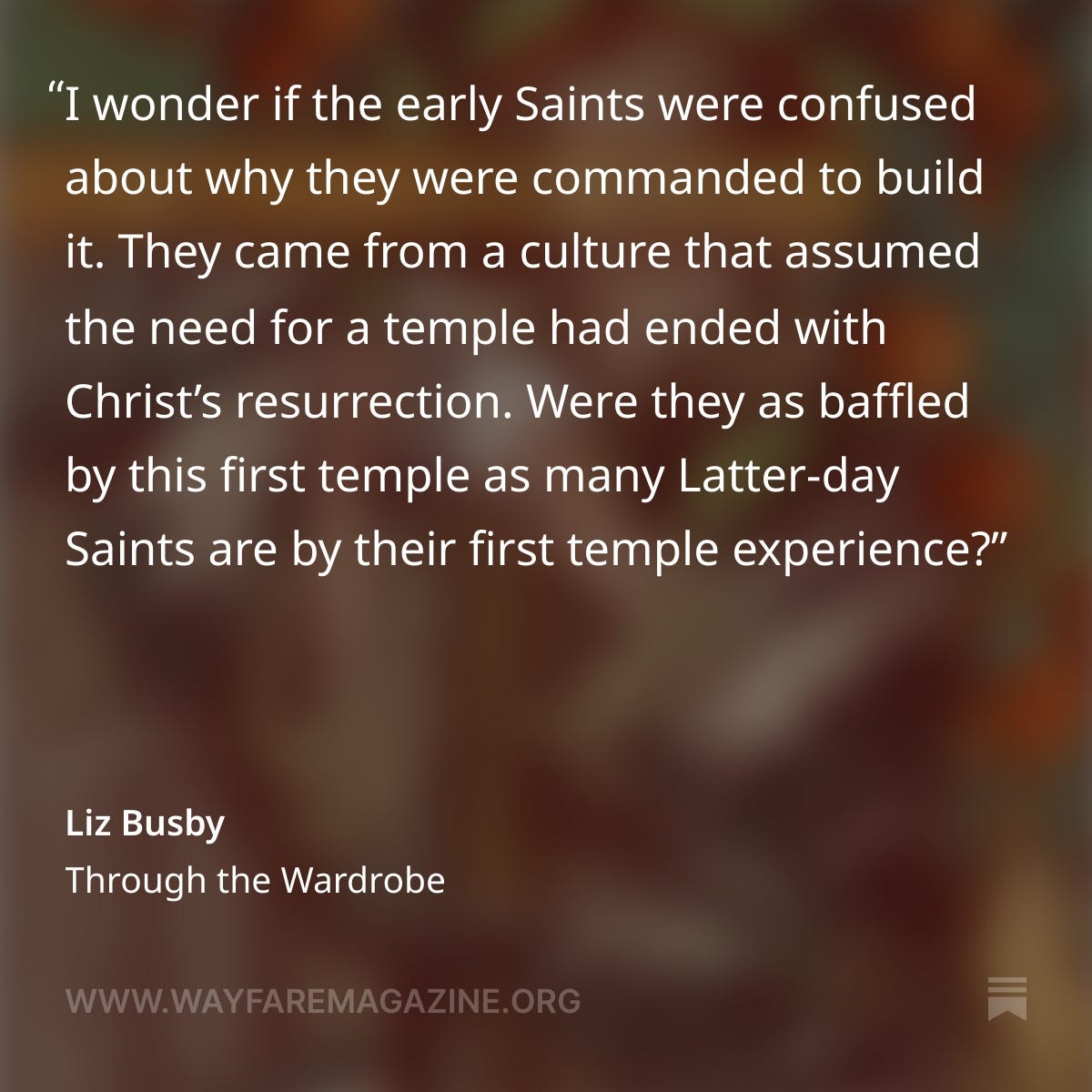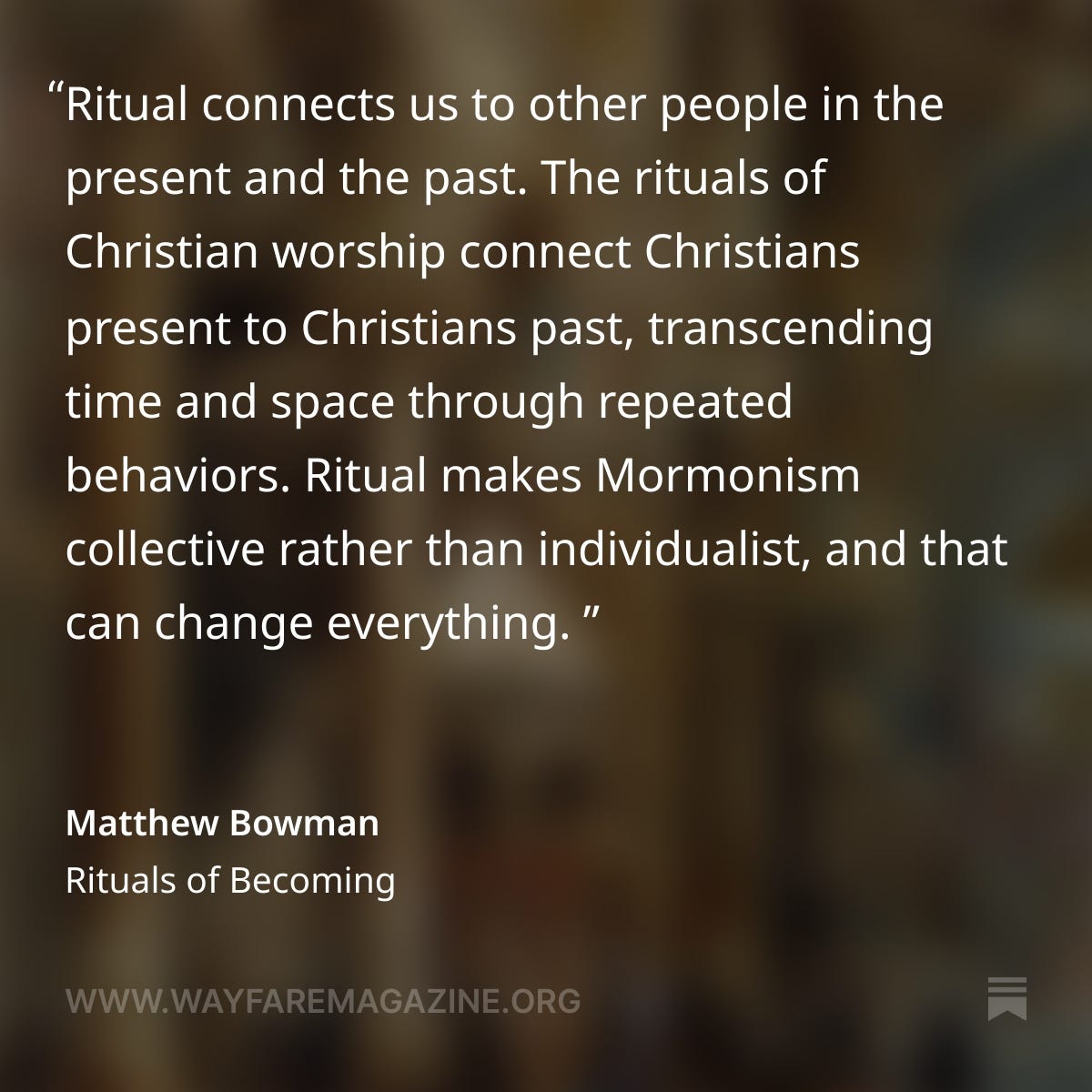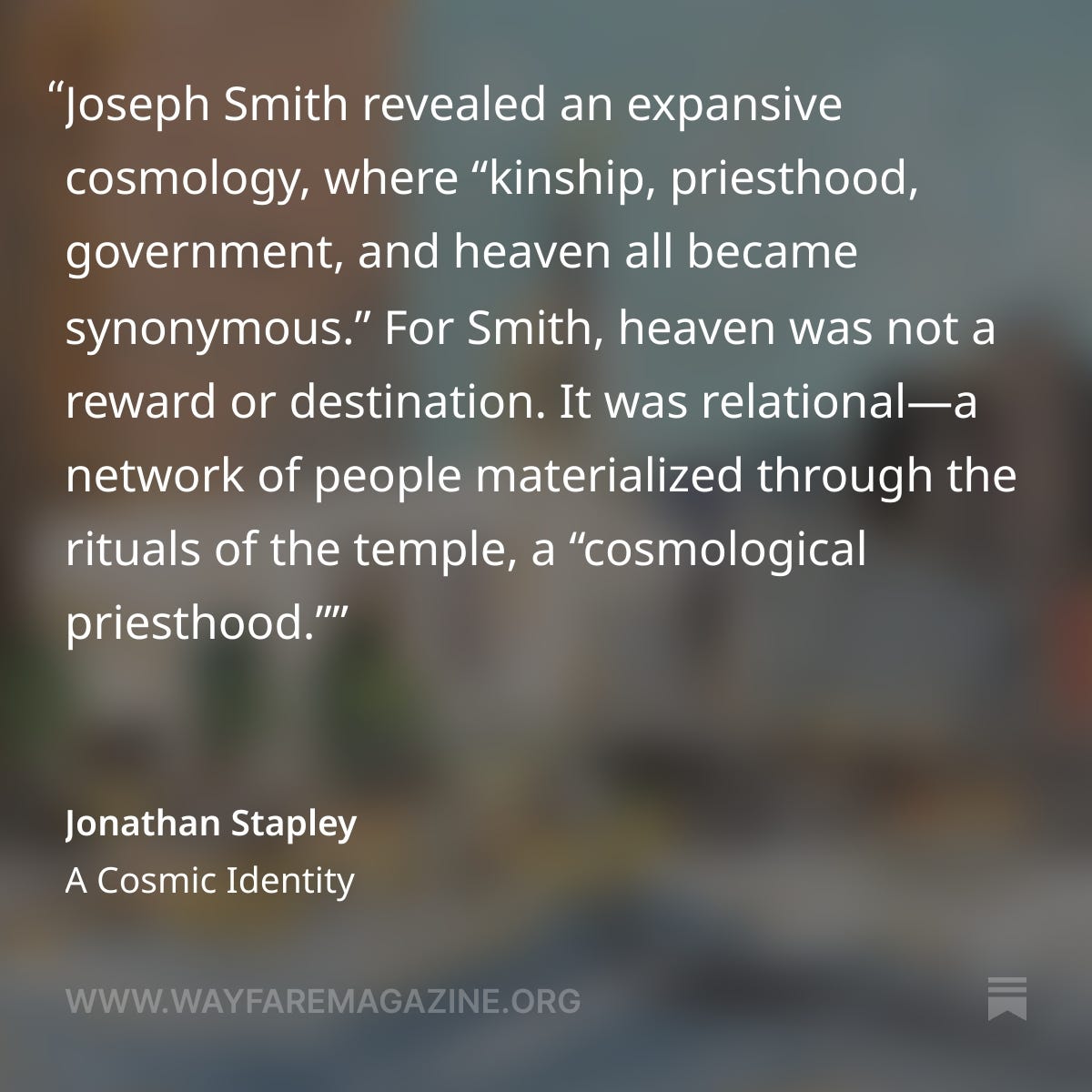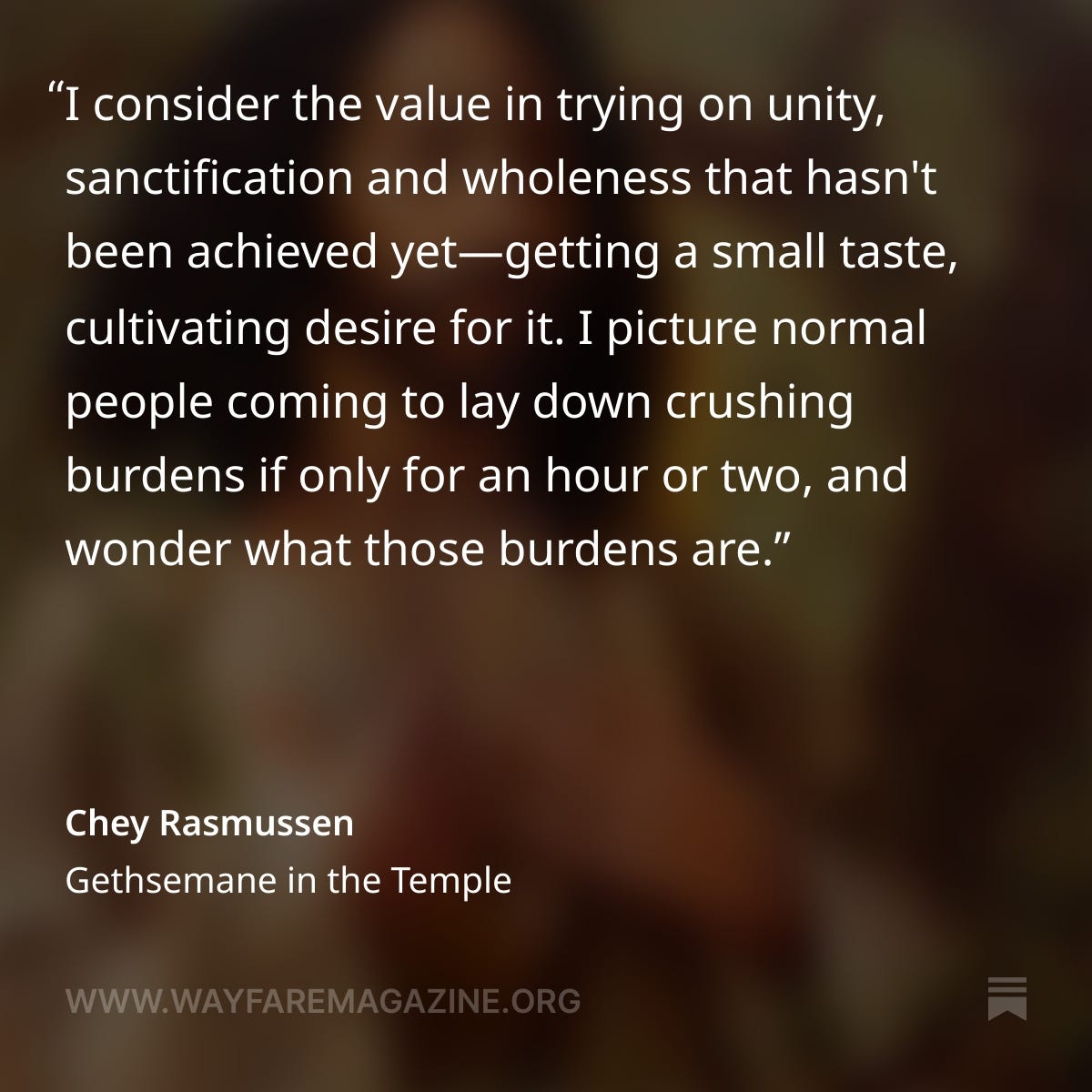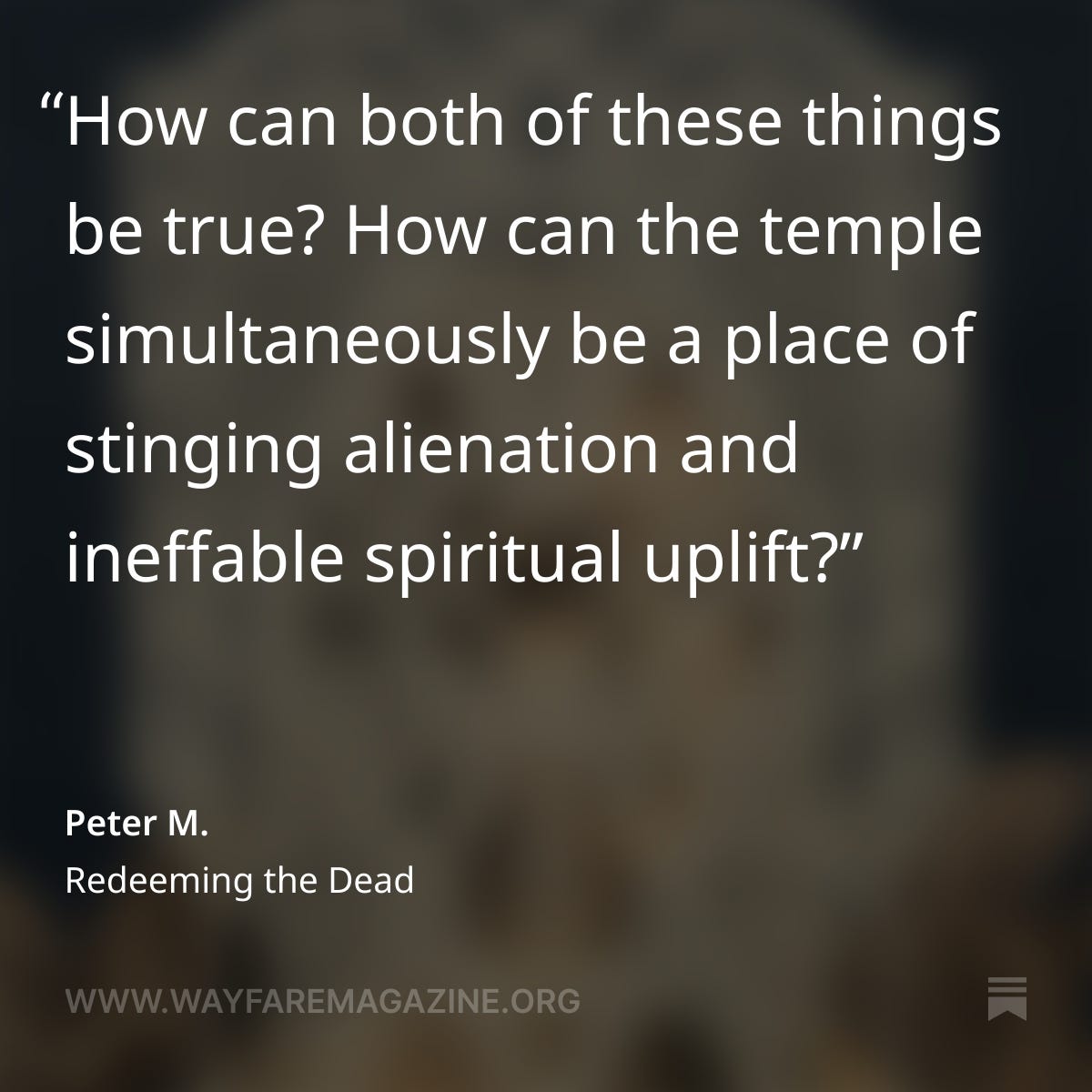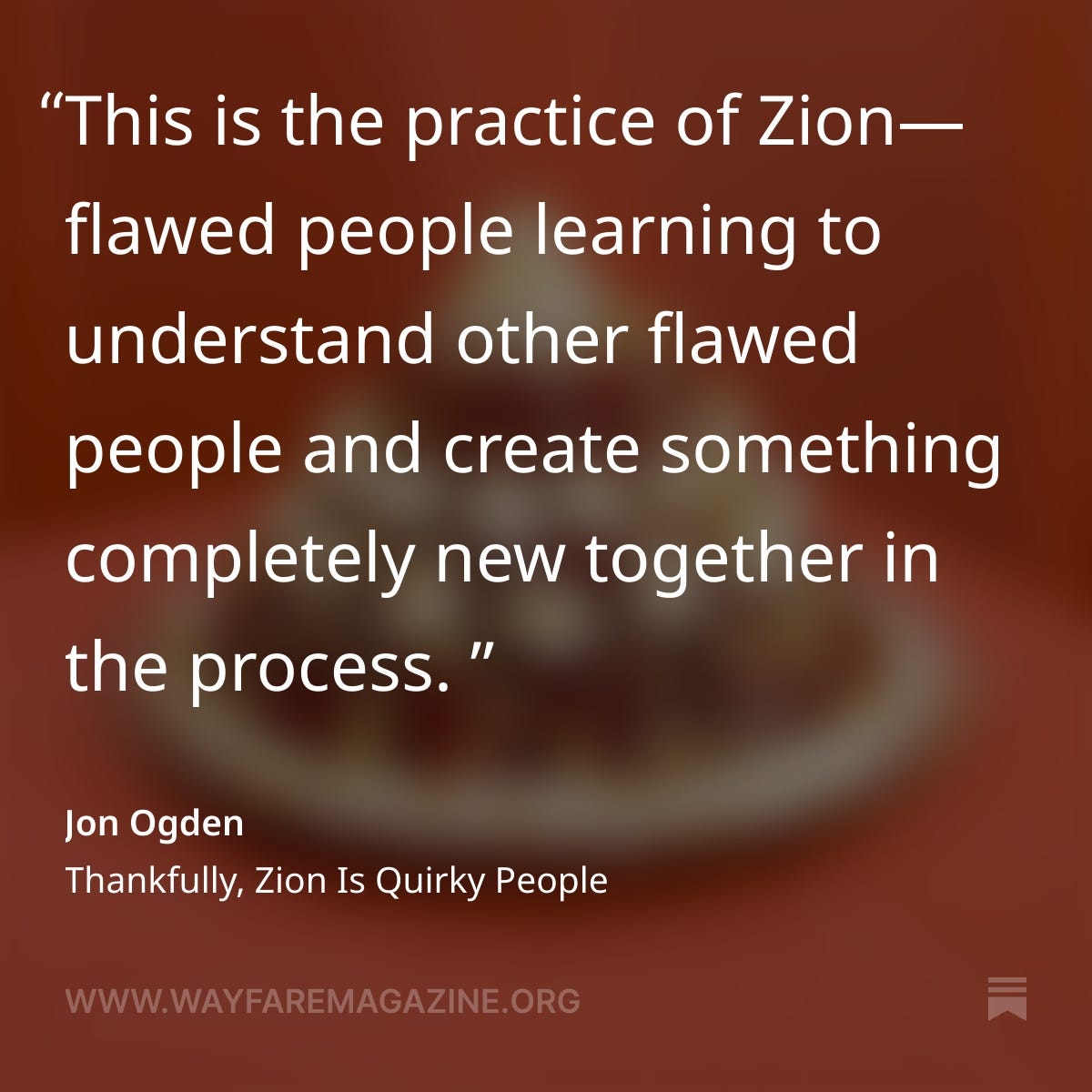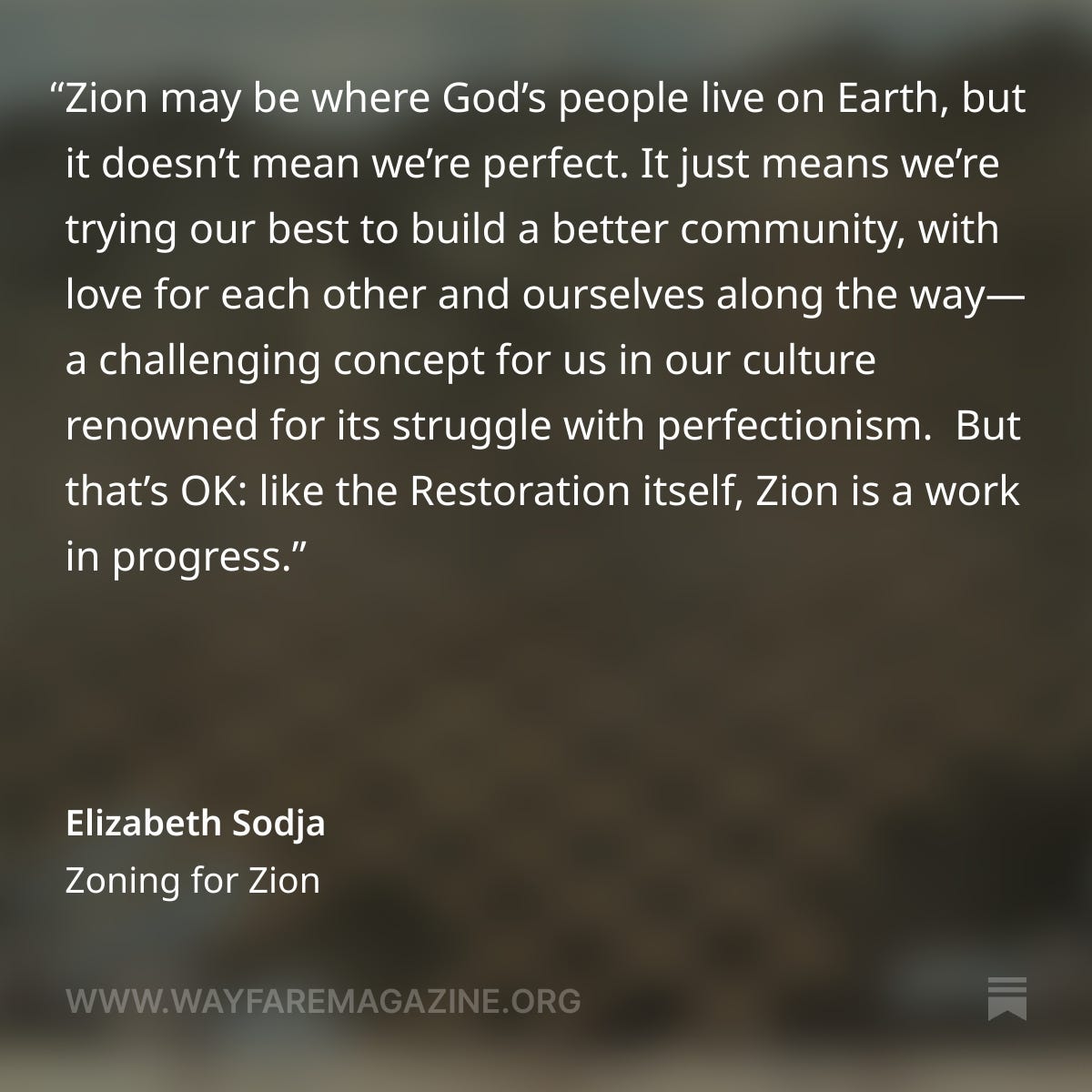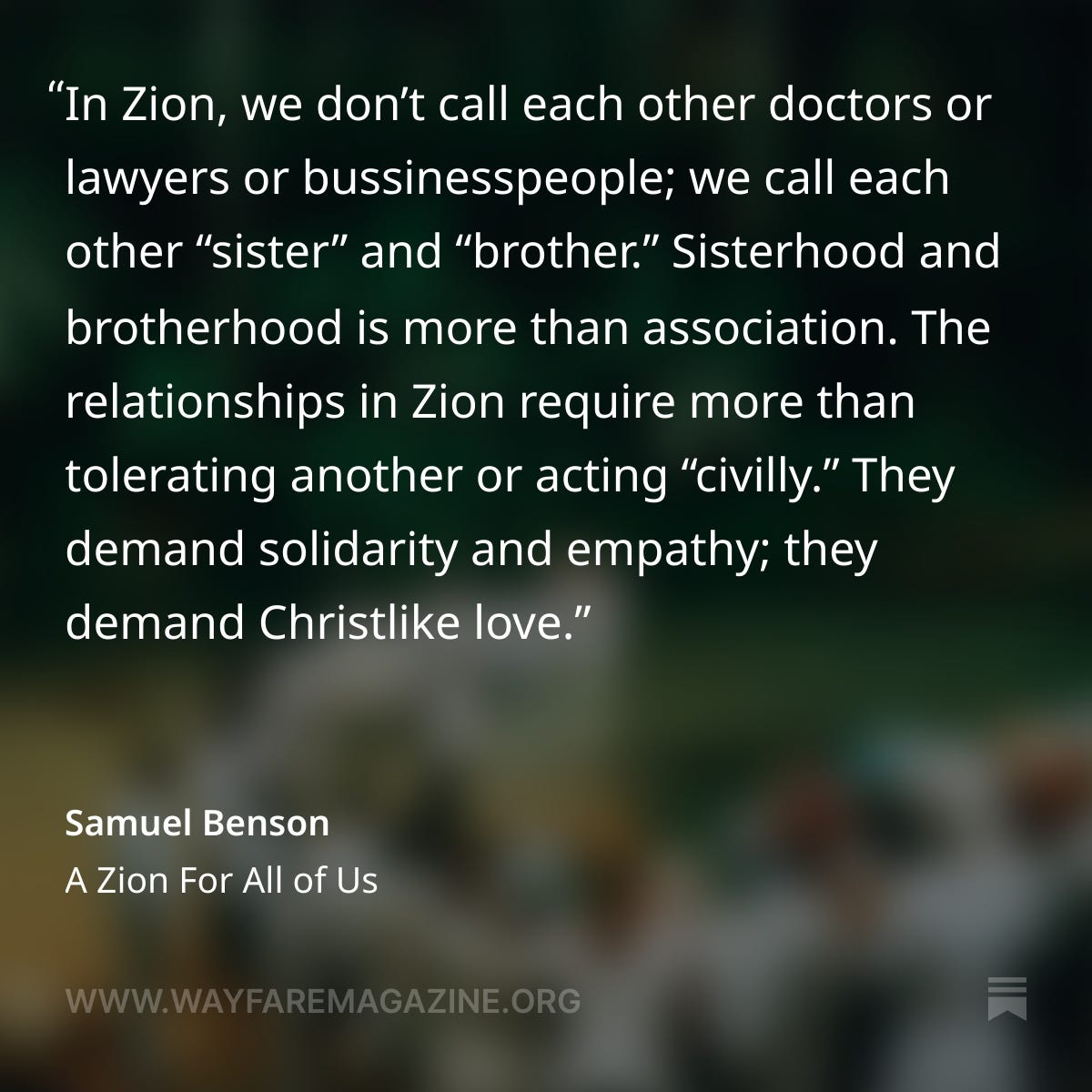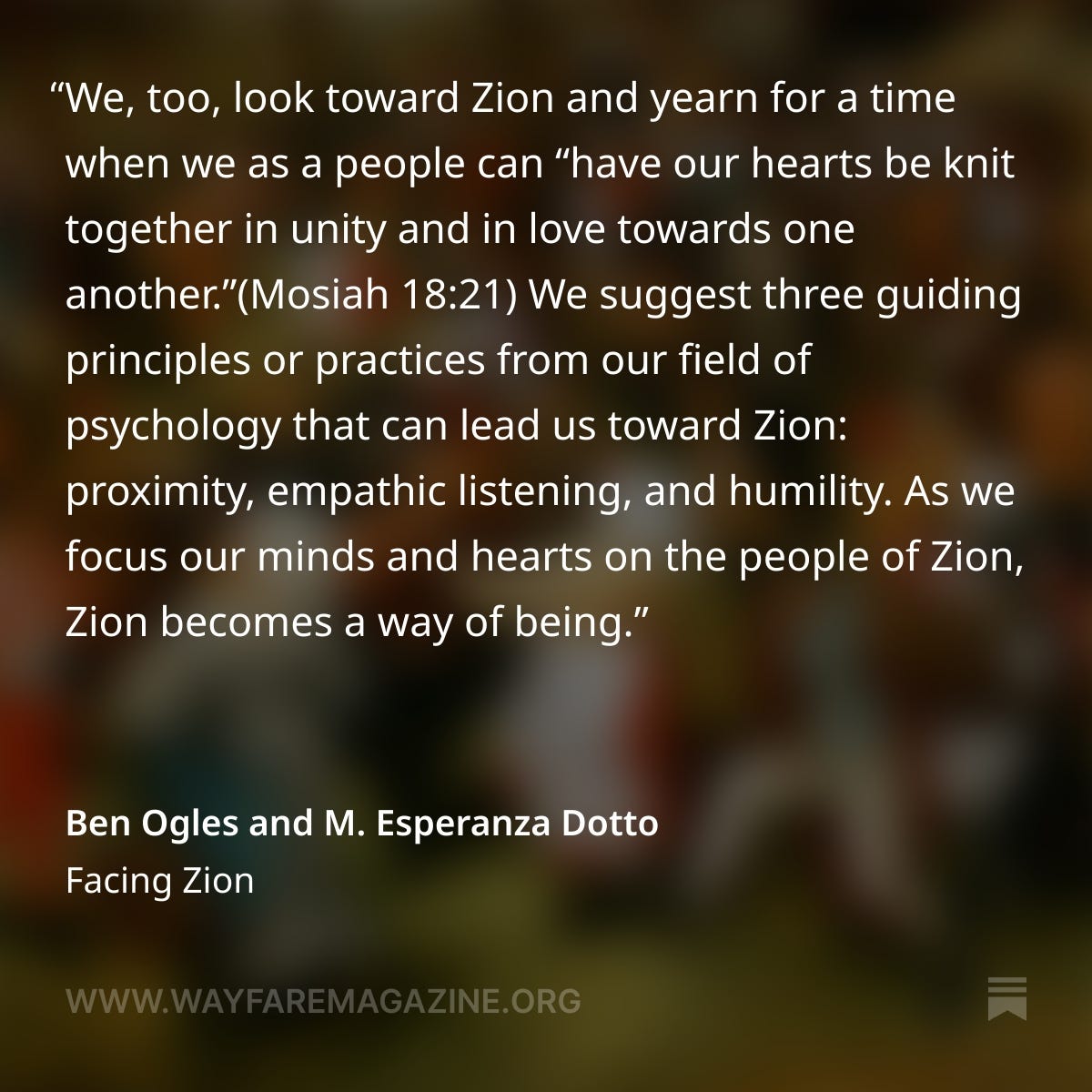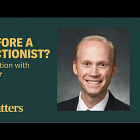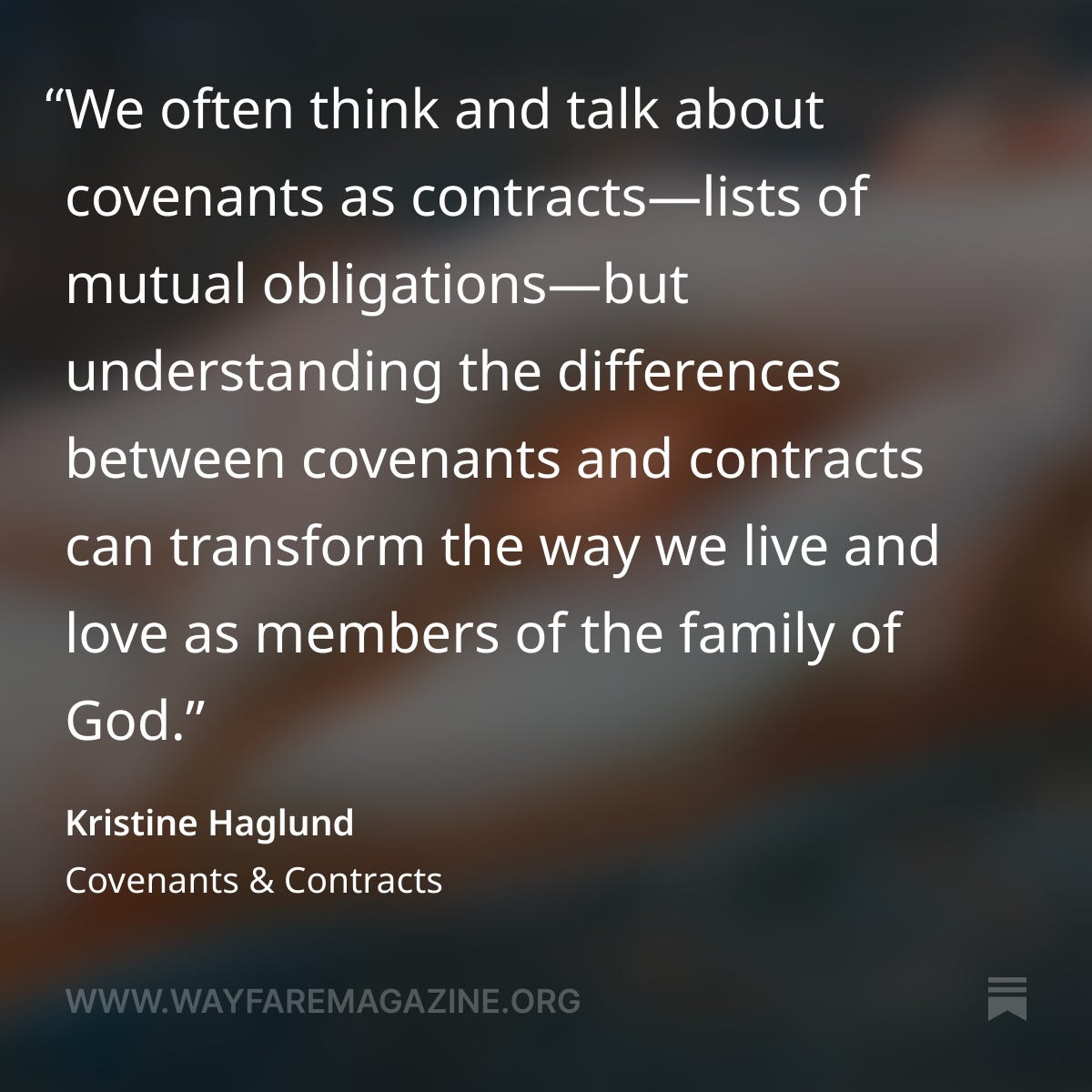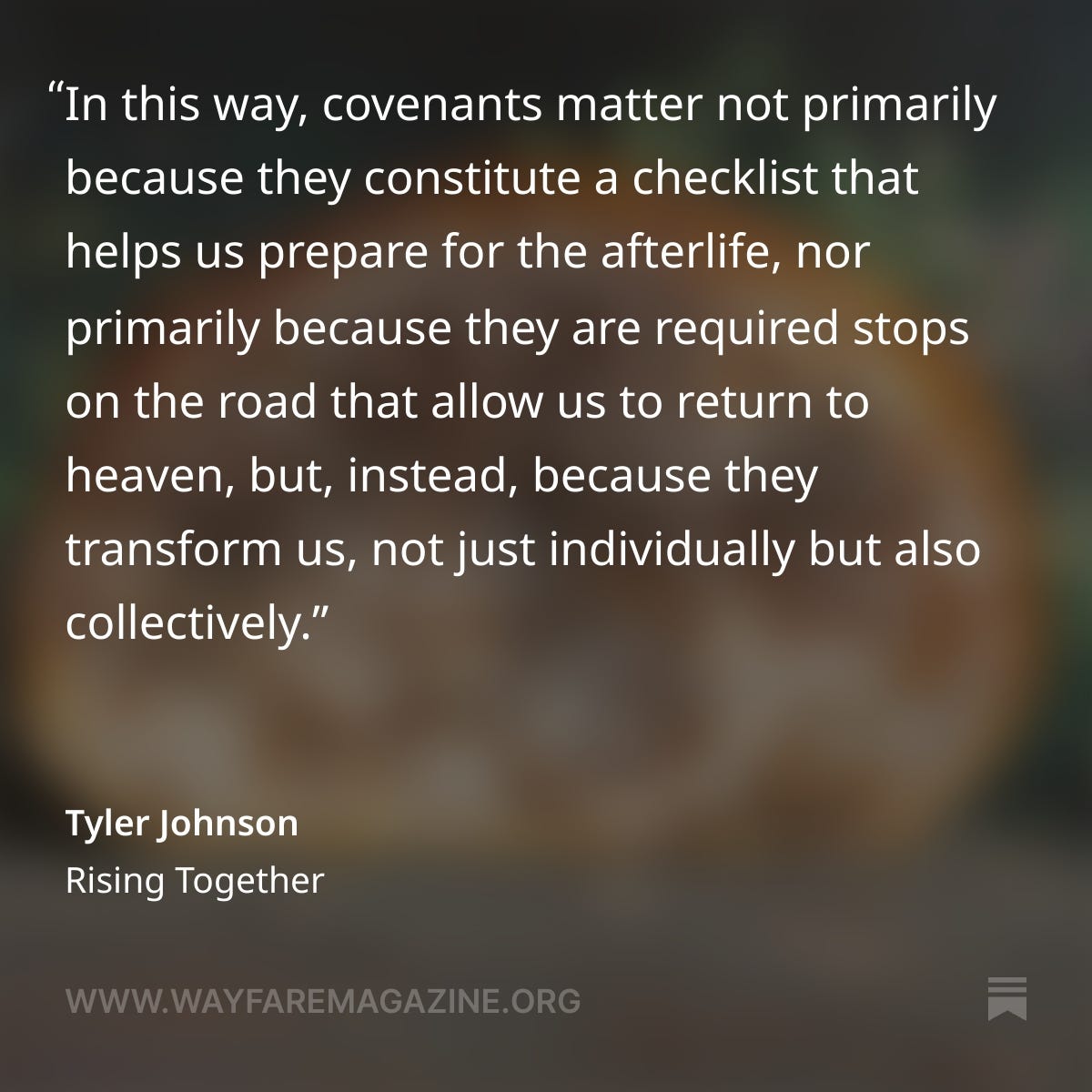What is the role of the temple? What is the purpose of covenants?
Faith Matters resources to accompany your Come Follow Me study: September 1-7
I can be “wholly dedicated unto the Lord.”
We can say that we value an almost infinite number of people and things, and we might even believe it. But we can only dedicate our attention to a few of them—and those few things determine who we become. …
The great commandments are not injunctions on how to qualify for heaven after we die, but instructions for how to build heaven while we are still on earth. The Kingdom of God is, by definition, a society in which everybody focuses their attention on God and each other—rather than on their own needs and desires.
—Michael Austin, “The Sacrament of Attention”
The Lord chastens those He loves.
The word repentance unfortunately carries with it a lot of baggage such as penance, shame, and the idea that heaven must be earned, so the word is a mixed bag. But the reality it points to is worth noticing.
Gracing, I believe, is this reality. Repentance is the journey of turning to God again and again. We forget to join with God, and then we remember. We think we are right, and then we realize we are wrong. We stop living a lie. We stop telling ourselves stories that keep us stuck. We live with ego-driven, narrow vision, and then, as with a camera lens, we zoom out and see that God was present all along. Our experience and story changes. God offers alternate views, relationships, healings, and ways of being and seeing—over and over.
But through a softer lens, we also heal from our accumulated wounds. With Jesus, people who are blind see. People who are deaf hear. People who are lost are found.
—Hannah Crowther, Gracing
The temple is the house of the Lord.
Find everything we’ve published in Wayfare on the temple experience here.
“They are accepted of me.”
What if I'm already worthy?
What if God's love is so radical that I can't earn it and I can't comprehend it?
If I sit through that restlessness, rather than being driven by it, rather than constantly striving to avoid that sense of not being worthy, what if I sit so deeply in that sense of being unworthy that the bottom falls out, and I come into something even more true, which is, no, you don't need to earn it. That's not what this is about. That's not the situation.
Then I found myself motivated from a new place. I was actually striving more than ever, if we want to use that word striving, but it was coming not from a place of lack, like I got to earn this or all is lost. It was like, Wow. Divine love is so radical and it's inspiring me to live the best life I can. And that's really my privilege to get to express that love in my own unique way as best as I can.
—Thomas McConkie
I was home from college for the weekend and was in the midst of several days of fasting and prayer. As I took the sacramental bread in that little chapel, I began to feel a flood of love and deep acceptance enter my body, filling me with a joy and light I could never have imagined. My heart was ablaze with love and it seemed to flow out from me to the row of white-haired widows who sat in their accustomed pew in front of me. My ego dissolved in this moment and love seemed to fill that little chapel and flow out the open windows into the world outside. Nothing had prepared me for this new reality God had shown me. I had no language for it at the time.
As I emerged from the church house after the meeting, the whole world seemed different. The trees and grass and sky seemed pulsating with life and I felt deeply connected to all of it. My family and neighbors, religious or not, seemed to be walking around unaware that they were in reality lit angels, each a unique expression of a light that animated them all. The world no longer seemed divided to me. I could see clearly that we are in reality fundamentally connected, despite how our thoughts might seek to divide us.
—Bill Turnbull, “At-One-Ment”
Zion is “the pure in heart.”
The Lord blesses people who keep covenants with Him.
Find everything we’ve published in Wayfare on covenants here.
The primary work of LDS rituals is to invite us into relationships. Sometimes the word Church members use to describe these relationships is “covenant,” a term that can feel archaic and even legal. Church members often talk about “covenants” as though they are contracts in which each signatory promises something contingent upon the performance of the other, as though the relationship with God established in the temple endowment ceremony is comparable to executing a mortgage agreement.
But I think that sort of interpretation reflects, again, the world of shopping and commerce modern Americans are used to, when in fact the implication of the rituals themselves points less to commercial contracts, in which two people exchange something, than to the establishment of kinships, which are personal relationships that cannot be obliterated even when one party behaves badly. All throughout scripture, after all, God declares that his covenant with his people will never be canceled even if the people violate it. Isaiah 54:10, for instance:
For the mountains shall depart, and the hills be removed; but my kindness shall not depart from thee, neither shall the covenant of my peace be removed, saith the Lord that hath mercy on thee.
The rituals of Latter-day Saint worship, I think, point us in this direction. They don’t exist to give us information that we need to better fulfill a contract. Instead, they invite us to behave as though we are always already in relationships in which we give to each other out of care and kinship.
—Matthew Bowman, “Rituals of Becoming”
To live a covenant life is to promise to spend your life seeking to discover how God would have you engage with your fellow humans and the world around you.
In this way, covenants matter not primarily because they constitute a checklist that helps us prepare for the afterlife, nor primarily because they are required stops on the road that allow us to return to heaven, but, instead, because they transform us, not just individually but also collectively
—Tyler Johnson, “Rising Together”


